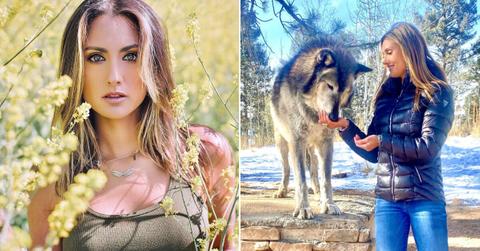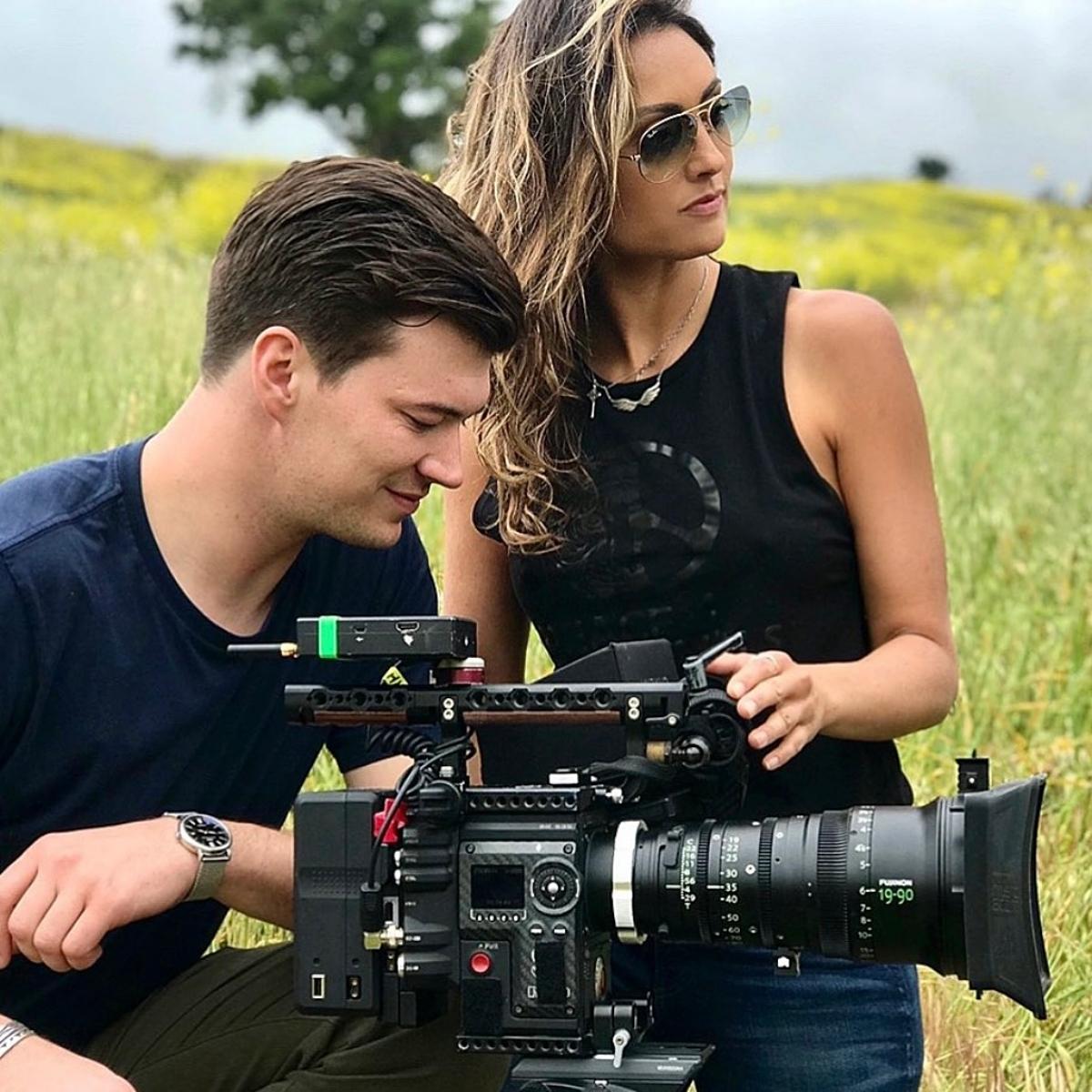Katie Cleary on Her Doc 'Protectors of the Wild': "The Health of the Ecosystem Relies on Wolves" (Exclusive)
"If we can't protect the wild spaces, we can't save these animals from extinction."
Published July 25 2024, 3:43 p.m. ET

From "save the whales" to "save the bees," movements and organizations dedicated to liberating threatened and endangered keystone species — aka organisms that greatly impact the health and functioning of an ecosystem — have dotted the media for decades.
For animal welfare activist and documentarian Katie Cleary, the current focus is protecting a certain canine endangered keystone species in North America.
"There are only 5,000 wolves, at one point there were millions," she exclusively tells Green Matters of the wild wolves in the United States.
The former actress and America's Next Top Model contestant has dedicated her life to helping animals since she was around 30.
"I knew I was always here for the animals," Cleary tells us over Zoom.

Cleary — founder of both World Animal News and Peace 4 Animals — executive-produced the 2014 animal welfare documentary Give Me Shelter and directed the 2022 nature documentary Why on Earth.
Her upcoming documentary, Protectors of the Wild, aims to educate the public on wild wolves, whose presence can help revitalize struggling ecosystems.
In an exclusive interview with Green Matters, filmmaker Katie Cleary talks Protectors of the Wild, the battle between wild wolves and cattle ranchers, and her belief that we must "re-wild our Earth."
'Protectors of the Wild' director Katie Cleary is adamant about putting wolves on the endangered species list.
Prior to Protectors of the Wild, Cleary was asked to join the #RelistWolves Campaign, a grassroots coalition with a mission to put gray wolves back on the endangered species list.
Specifically the coalition is trying to "relist wolves on the endangered species list in the Northern Rockies, where where they're not protected currently," Cleary says. "They want to delist them in every other state in the lower 48. ... We're trying to prevent that."
As per the U.S. Fish & Wildlife Service, the Northern Rocky Mountains gray wolf population was delisted "due to recovery" back in 2011, with Wyoming wolves being delisted in 2017. After a February 2022 court order, "gray wolves in the contiguous 48 states and Mexico — with the exception of the Northern Rocky Mountain population — are now protected under the Endangered Species Act (ESA)," the USFWS reported.
If wolves are not listed as endangered, their existence is at risk.
Katie Cleary says the meat and dairy industries are connected to the erasure of North American wolves.
"These cattle, they graze on public lands, which shouldn't be. Specifically in the Yellowstone, Northern Rockies region, but throughout the United States this is an issue, even [in] Wisconsin. ... The cattle ranchers don't want [wolves] there, they think that they're going to be eating their cattle. Less than one percent of all cattle is taken by wolves," Cleary explains, noting that cattle ranchers are compensated if wolves attack their livestock. "We're using wild lands ... and it's degrading the ecosystem."
The Center for Biological Diversity notes that livestock grazing comes with an the ecological cost, as they wreck native vegetation, soils, and stream banks, even contaminating water via fecal matter. Land becomes flat and dry, soil erodes, and overgrazing can halt necessary forest fires, leading to overly dense forests and weak trees that compete for resources.
"Predator control" programs, which harm keystone predators, aim to protect profitable livestock, and therefore protect the meat and dairy industries.
"When wolves returned to Yellowstone, it changed everything. It changed the erosion, it changed the river system, it changed — all the species that came back as a result. It was just incredible," Cleary continues. "They've been reintroduced into Colorado as a result."
Gray wolves were reintroduced into Yellowstone National Park in 1995, as per the National Geographic Society, creating "a trophic cascade through the entire ecosystem."
"We're invading their wild lands, and they have nowhere to go. If we reduced our meat consumption and went plant-based, that would solve a lot," she adds. "These cattle ranchers don't don't like us very much. But we've got to tell the truth. And that's what Protectors of the Wild is all about."
Cleary tells us that the Protectors of the Wild team has spoken to hunters and cattle ranchers with a mission to educate and find common ground. She says they refuse to budge.
"We're just trying to protect our natural ecosystem and protect this keystone species that has been vilified for generations."
Katie Cleary explains how the loss of wolves is detrimental to the health of the planet.
Thriving wolf populations could have a positive impact across North America, and that's a world Cleary hopes for.
"The health of the ecosystem relies on wolves and apex predators. ... There's a lot of deer that are overpopulated in many states. The reason they're getting hit by cars and dying of diseases is because there's no apex predators to take care of the situation," she says. "We don't have an equal balance right now."
Relisting and reintroducing wolves is only one way Cleary believes we can "re-wild our Earth."
"Plant more trees everywhere! ... Get involved in community groups. There's so many great organizations that are helping to protect rainforest habitats," she says. "If we can't protect the wild spaces, we can't save these animals from extinction."
As of this writing, Protectors of the Wild is halfway done, as the team is currently raising money to finish it.
"I hope to bring it to you guys in about a year," Cleary relays.